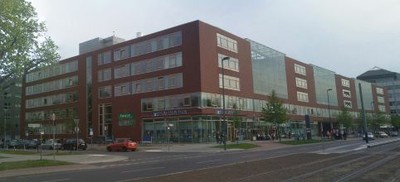absASONAM12.txt
Collaboration networks arise when we map the connections between scientists which are formed through joint publications. These networks thus display the social structure of academia, and also allow conclusions about the structure of scientific knowledge. Using the computer science publication database DBLP, we compile relations between authors and publications as graphs and proceed with examining and quantifying collaborative relations with graph-based methods. We review standard properties of the network and rank authors and publications by centrality. Additionally, we detect communities with modularity-based clustering and compare the resulting clusters to a groundtruth based on conferences and thus topical similarity. In a second part, we are the first to combine DBLP network data with data from the Dagstuhl Seminars: We investigate whether seminars of this kind, as social and academic events designed to connect researchers, leave a visible track in the structure of the collaboration network. Our results suggest that such single events are not influential enough to change the network structure significantly. However, the network structure seems to influence a participant’s decision to accept or decline an invitation.
